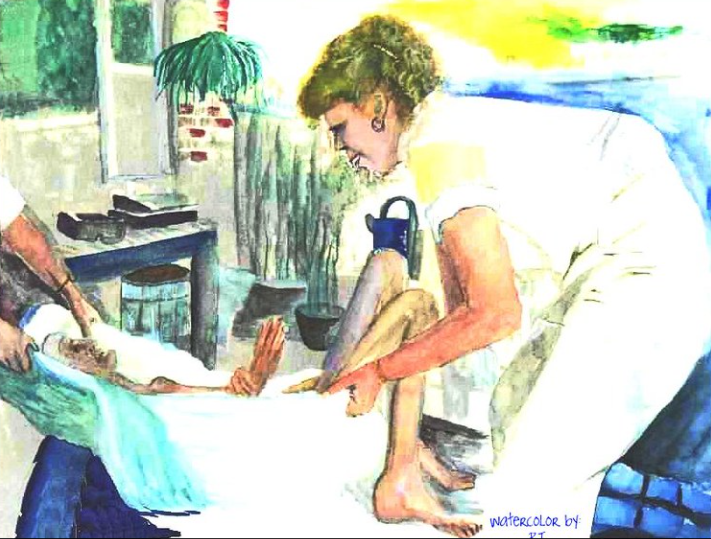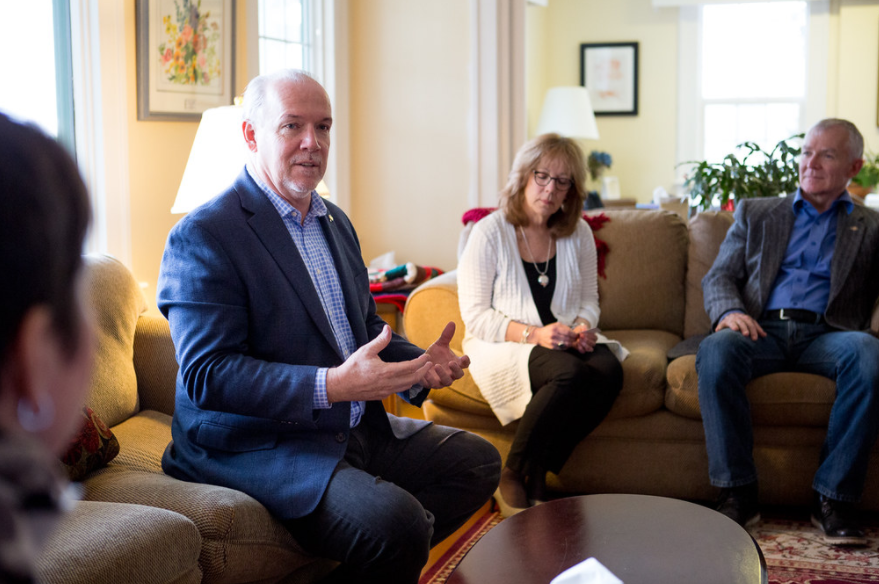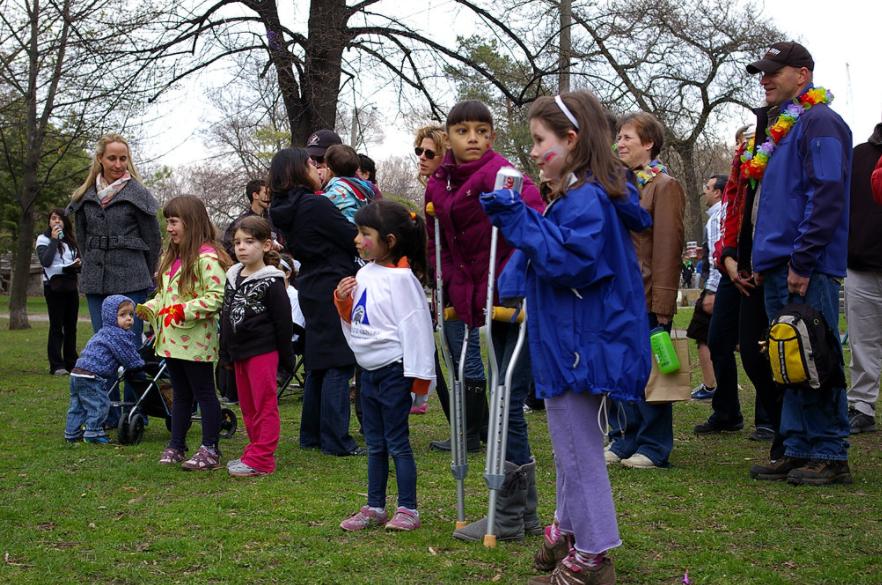
Everyone involved in the business of Hospice care can be considered a real hero because of the risk they take on their emotional health to take care of terminally ill patients.
It is not easy dealing with death all around you. These hospice workers have to see it every day.
It is arguable that the patient and their loved ones take a larger emotional toll throughout the whole experience, yes. But that should not invalidate the efforts hospice workers go through to provide a caring and nurturing environment for the benefit of the patients.
Using the term “hospice workers” involves everyone from medical professionals all the way to the volunteers. They are always on the frontline, forming emotional attachments to their patients.
This article outlines the responsibilities hospice workers take on to provide patients with quality palliative care in a hospice setting. It also includes how these workers deal with death and the afterlife.
Hospice Doctors
Hospice doctors are in charge of creating a hospice care plan for their assigned patients. They are usually the ones who relay hospice information for families and patients to help them understand how hospice works.
They could also be in charge of identifying whether a patient is qualified for hospice care or not. Hospice doctors are qualified to make referrals should a patient be eligible for hospice care.
These doctors can communicate with the patient’s primary care physicians or specialists to assist in deciding whether a patient could have a better quality of life continuing with treatment or by enrolling into hospice care.
If they are assigned to be part of a patient’s medical team, they come up with a hospice care plan that guides the rest of the team on their goals for a specific patient.
Doctors can make changes to the plan as necessary depending on how the patient responds to hospice care treatment. They are kept well-informed of any developments in the patient’s case and are usually the ones who perform the regular checkups.
Hospice Nurses
Hospice nurses are in charge of most of the patient’s round-the-clock care. There are different types of hospice nurses and each one requires a special skill set.
Most nurses specialize in more than one skill set that allows them to be versatile in handling patients. The different types are as follows:
Admission Nurse
As the name suggests, these nurses are the ones a patient and their family members first come in contact with. They guide the patient and their family throughout the entire admissions process.
They answer questions, gather more details about a patient, and work closely with the patient’s physician to determine whether or not a patient is eligible for hospice care.
Admission nurses could be one of the foundations of a patient–and their family members’—education when it comes to learning about hospice care.
Once a patient is accepted to receive hospice care, an admission nurse will ask them a series of questions to help the hospice doctor determine what kind of care plan that patient should receive.
They can be in charge of arranging for and ordering special care equipment that is best suited for a patient including medicines.

Case Manager
A case manager takes charge of a patient’s entire case and makes sure instructions are followed to a tee. With the assistance of the hospice doctor, the case manager comes up with a plan of care that is unique to every patient.
They manage the organization of each aspect of the patient’s care plan to make sure it runs as smoothly as possible.
It is perhaps one of the hospice nursing jobs that involves plenty of direct contact with the patient. They allocate resources that are needed for the patient and decide how to deal with a patient’s family members.
Case managers may also be in charge of arranging the care plan for the patient’s family members once the patient passes away.
Visit Nurse
The visit nurse performs the care outlines in the patient’s care plan. They do routine tasks such as wound dressing, administering medicines, and documentation of said care.
Triage Nurse
Since patient care is available 24/7, a nurse who is capable of quick skills has to be ready from the moment a patient calls asking for help.
A triage nurse assesses the situation and executes a plan in the nick of time to save a patient’s life.
They can decide whether or not a patient receives immediate care with the added consultation of the patient’s physician.
Triage nurses are required to be critical thinkers who can execute decisions in the quickest and most effective ways possible.
Hospital Liaison
Hospital liaisons coordinate with hospitals when it comes to referring patients to partnering hospice organizations. They decide which organization is best suited for a patient.
Other than this, hospital liaisons are often in charge with delivering through end-of-life patient decisions and communicates this to all parties involved.
Nurses admittedly do a lot of work, and on average, they get a salary of about $30 per hour. They also receive benefits that go with their employment plan in repayment of the hard work they do to ensure quality care for their patients.
Hospice Counselors/Chaplains
Since nurses and doctors focus mainly on the physical health and well-being of a patient, the counselors or chaplains provide spiritual health.
Most existential questions start to bother patients once they are faced with the reality of their situation. They can choose between either a spiritual counselor or a chaplain, depending on their religion.
These workers ensure that a patient is at peace with their existence and the decisions they made that led them on that path.
It can also be a way for patients to come clean on things that have bothered them, or wrongdoings that they committed.
In Roman Catholic (or Christian) tradition, patients who are terminally ill want to receive Last Rites before they die so that they can join God in the Kingdom of Heaven.
Each patient needs something different from their counselor or chaplain, but this level of care may also be extended to family members who are having a hard time coming to grips with the inevitable death of their loved one.
The spiritual counselor or chaplain talks to them about the entire process and helps them achieve peace with what is about to happen.
Though spiritual health is not as advertised compared to physical and emotional health, it is still one of the factors considered in performing palliative care.
Hospice Volunteers
Hospice volunteers are usually there to provide a patient with social interaction. They are the shoulder to lean on, and a compassionate ear to talk to.
Some patients can begin to feel lonely despite being in the comfort of their own home or they yearn for more interaction. This is where volunteers come in.
There are different types of volunteers who specialize in different kinds of care. There are patient care volunteers, administrative volunteers, music volunteers, pet therapy volunteers, and the like.
Each one is geared towards a different level of patient care that depends on their social and skill level. Neither is more important than the other because each have their own purpose.
Hospice volunteers are highly compassionate individuals who devote much of their time and energy to helping strangers who are at end-of-life care. Their generosity rewards them with a newfound appreciation for the important things in life.
These include the formation of human connection and values, and the importance they hold to the human psyche.
These volunteers are trained by the hospice care organization to maintain their professionalism while still creating a lasting emotional bond with the patient.
They must be able to be responsible and stick to the care plan prescribed for each patient. Volunteers deserve a medal for all the things they do—and all without cost.
Hospice Social Workers
A hospice social worker advocates for the rights and wishes of a patient. They assist mostly in the maintenance of an individual’s emotional stage.
They coordinate closely with families to identify other services available in a local context for support.
Social workers are there for the entire family as well as the patient. They serve as the calm within the storm and provide a way out of difficult situations through advanced problem-solving skills.
They deal with conflicts that may arise between the patient and their family members, the family members and the medical team, the patient and the medical team, and etc.
Hospice social workers sift through the emotional entangled mess that high-stress situations such as adjusting to hospice care can create.
They ensure a healthy flow of communication is available throughout the entire hospice care ecosystem. Patience, empathy, and realistic expectations are the qualities found in a good social worker.
Hospice Aides
Hospice aides perform a combination of duties that are related to the personal care of the patient while in their home environment. Their visiting schedule can go from every day to every three days.
By Medicare’s standards, visiting nurses should visit at least once every fourteen days to check whether a hospice aide is doing an adequate job of taking care of a patient.
Hospice aides are directly involved with the personal aspects of taking care of patient. This can include, but is not limited to:
Taking care of a patient’s hygiene
Most end-of-life stage patients cannot maintain their hygiene by themselves. They need assistance from a hospice aide to take a bath (shower, tub, bed, or otherwise) to avoid foul smells that could invite infection.
Patients are also not to be trusted with razors in case they accidentally do lasting damage on themselves. Hospice aides are tasked with shaving the patient.
After basic hygiene, the aide is required to dress a patient, and wash and comb their hair as well as providing the appropriate oral hygiene care.
They basically function as caregivers who specialize in treating hospice care patients.

Assisting patients with motion exercises
Patients who stay lying down for too long might develop other conditions that worsen their health. Hospice aides assist them in performing a wide range of motion exercises that stimulate muscle movement and allows patients to move from place to place.
Motion exercises could include turning and repositioning patients who are bedridden, as well as providing basic massage care.
Light housekeeping
If a patient is comfortable, hospice aides can help out with some stuff around the house. They can change the bedsheets or sweep the floors, and any other task that the patient needs assistance with.
Hospice aides do not do all of this alone. They can usually request the help of a volunteer to assist them in these responsibilities.
These can all be daunting tasks when faced alone. Having someone to assist is of great help to the hospice aide, and also allows the patient to have someone else to talk to.
It is not easy performing any of these jobs. Working in hospice care can be a grueling job that affects one emotionally as well as physically.
But despite all that, hospice care is one of the most rewarding jobs because it teaches its workers valuable life lessons that stay with them forever.
The simple act of caring can brighten up a patient’s day, and you will have contributed to a dying patient’s quality of life. You reassure them that they are important, and their illness should not make them feel less than.
Dealing with death and the afterlife
It is not easy being around death every day. Miraculous recoveries rarely happen in a normal medical setting.
The odds are rarer when placed in a hospice care setting. These are patients receiving end-of-life care and they are not expected to live a long time.
So how do hospice workers cope when their patient dies?
Each worker has their own way of coping with grief. As hard as they try to distance themselves from a patient, that is nearly impossible to do if they want to provide quality care.
They have access to grief counselors who talk them through their entire grief process. Workers have to find the balance between being present for a patient and remembering that they are not the patient.
Taking care of their emotional and mental health is important because they need to be perfectly healthy as they deal with other patients who demand the same level of care each time.
Oftentimes, it is hospice workers who recognize when a patient is near death or has already started the process of dying. In cases such as these, they have the added responsibility of informing the family what is happening.
Most patients in hospice sign a Do Not Resuscitate form that legally does not allow the medical practitioners to resuscitate them. This experience may be distressing for family members who are not ready to accept a patient’s passing.
When a patient dies, each worker has their own way of wishing the patient a peaceful afterlife. This could depend on their own set of beliefs or religion.
Hospice workers are the unsung heroes of hospice care. They surround themselves with death and despair so that they can help those who need them.
It is a mentally destressing job that requires tenacity and perseverance from its workers. They need to be capable of empathizing with a patient’s feelings and showing compassion.
A good medical team can make or break an entire hospice care experience.
